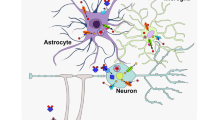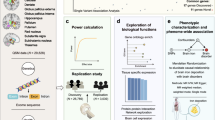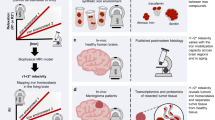Abstract
Summary: Studies were performed to determine the effects of iron deficiency on brain metabolism in rats. Concentrations of cytochrome pigments, oxidative phosphorylation, and catalase and monoamine oxidase activities in brain tissue were unaffected by iron deficiency. However, activities of aldehyde oxidase, a key enzyme in the pathway of serotonin degradation, were significantly reduced, and concentrations of serotonin and total 5-hydroxyindole compounds were elevated in brain tissue of iron-deficient animals. Aldehyde oxidase activities and concentrations of 5-hydroxyindole compounds in brain tissues returned to approximately normal values one week after treatment of iron deficient animals with iron dextran.
Speculation: States of iron deficiency may result in reduction of important iron containing enzymes in brain tissue and altered brain metabolism.
Similar content being viewed by others
Log in or create a free account to read this content
Gain free access to this article, as well as selected content from this journal and more on nature.com
or
Author information
Authors and Affiliations
Rights and permissions
About this article
Cite this article
Mackler, B., Person, R., Miller, L. et al. Iron Deficiency in the Rat: Biochemical Studies of Brain Metabolism. Pediatr Res 12, 217–220 (1978). https://doi.org/10.1203/00006450-197803000-00011
Issue date:
DOI: https://doi.org/10.1203/00006450-197803000-00011
Keywords
This article is cited by
-
The Unexplored Crossroads of the Female Athlete Triad and Iron Deficiency: A Narrative Review
Sports Medicine (2017)
-
Metabolomic Analysis of Cerebrospinal Fluid Indicates Iron Deficiency Compromises Cerebral Energy Metabolism in the Infant Monkey
Neurochemical Research (2013)
-
Latent iron deficiency alters gamma-aminobutyric acid and glutamate metabolism in rat brain
Experientia (1989)
-
Effect of latent iron deficiency on metal levels of rat brain regions
Biological Trace Element Research (1989)



